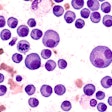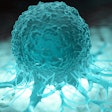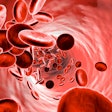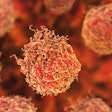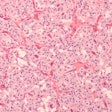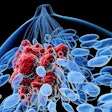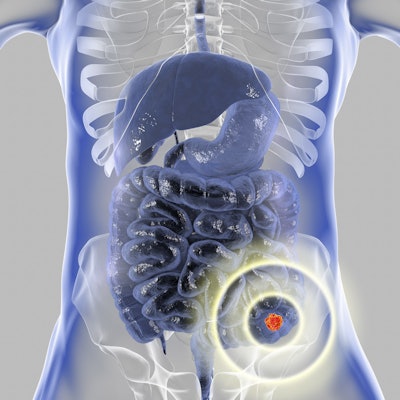
Circulating tumor DNA (ctDNA) has the potential to identify patients with stage II colon cancer who would benefit most from chemotherapy after surgery and separate them from those who could avoid the toxicities of chemotherapy, according to an international study.
Findings from the study were presented Saturday at the annual meeting of the American Society of Clinical Oncology and published in the New England Journal of Medicine.
Researchers led by Johns Hopkins Kimmel Cancer Center and WEHI in Melbourne, Australia, discovered that providing chemotherapy to ctDNA-positive patients reduced the overall use of chemotherapy for stage II colon cancer patients without compromising recurrence-free survival.
"[Additionally] patients who were ctDNA-negative could be spared the toxicities of chemotherapy," the researchers wrote.
In ctDNA analysis, peripheral blood is directly evaluated for evidence of minimal residual disease that could ultimately be the source of a later clinical recurrence. Prior research has shown that detecting ctDNA in blood postsurgery could be useful in predicting the risk of cancer recurrence.
"Previous studies have theorized that ctDNA measurements might be useful in guiding patient management, and this study provides real-world clinical evidence that supports these theories," Bert Vogelstein, an NEJM study investigator and codirector of the Ludwig Center at Johns Hopkins, said in a statement.
The current standard care for nonmetastatic colon cancer is surgery, with histopathological staging that informs the use of up to six months of adjuvant chemotherapy.
At stage II, colon cancer has grown through the wall of the colon but does not extend to the lymph nodes or other organs.
"Although the benefit of adjuvant chemotherapy has been unequivocally established for patients with stage III colon cancer, its usefulness for patients with stage II disease continues to be debated," the researchers wrote, adding, "More precise prediction of recurrence risk after surgery for stage II colon cancer could address this clinical dilemma."
The NEJM study, called the Circulating Tumour DNA Analysis Informing Adjuvant Chemotherapy in Stage II Colon Cancer (DYNAMIC) trial, was designed to investigate whether a ctDNA-guided approach could reduce the use of adjuvant treatment without compromising the risk of recurrence.
In all, 153 patients with stage II colon cancer received standard management, including monitoring over time for recurrence or chemotherapy; an additional 302 patients underwent blood tests within seven weeks after surgery to search for ctDNA.
Dr. Anne Marie Lennon, professor of medicine and director of the division of gastroenterology and hepatology at Johns Hopkins Kimmel Cancer Center, told LabPulse.com that the investigators are evaluating the detection of ctDNA in the blood of patients with stage III colon cancer as a next step to determine whether the approach can help identify those who would benefit from more intensive chemotherapy. Furthermore, Dr. Lennon said that they anticipate evaluating the approach in other types of cancers, such as pancreatic cancer, to guide management, adding that new studies are underway with the aim of seeking approval for the approach from the U.S. Food and Drug Administration (FDA).










